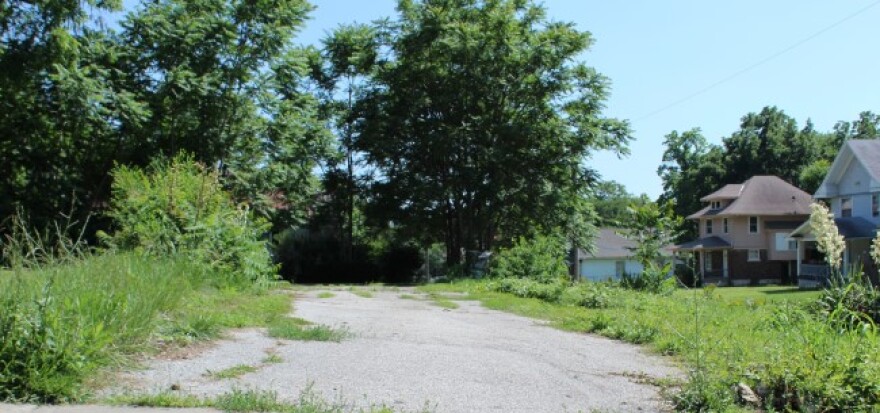There are thousands of vacant lots in Kansas City, Mo. In the Ivanhoe neighborhood, from 31st Street to Emanuel Cleaver Boulevard and Prospect to Paseo, the Ivanhoe Neighborhood Council owns more than 150.
"Every lot can't be a community garden. Every lot can't be an urban farm. So it's like, what else can we do with these lots?" asks Dina Newman, who's coordinating a project in Ivanhoe called LOTS of Love.
The vision for the LOTS of Love program includes turning lots into a place for physical activity, a space to meet-and-greet, or urban gardens. At 37th and Woodland, they've already transformed one lot into a fruit and vegetable garden.
But there are unique challenges when it comes to creating an edible landscape on the former site of a building, especially one that's been torn down because it's deemed "dangerous." This means the roof or walls had holes, the walls were leaning or buckling, or the structure was damaged by fire.

1. Soil quality
High-quality soil is essential especially for vegetable and fruit crops. Soil testing is recommended to assess the risks in the soil, if remnants of building materials or heavy metals, such as lead or other toxins, remain.
Knowing the history of the site can lead to the essential soil tests. It also can help determine which crops are best suited to the site or if raised beds are needed. Extension services and master gardening programs are available for soil testing services.
2. Access to water

"Most of these lots ... there's usually not water, a water source," says LOTS of Love coordinator Dina Newman. "So we're dragging a hose across the street and we're paying for that."
In May, the city of Kansas City, Mo., launched a new program to improve water access for community gardens and city farms. KC Grow provides grants, funded by the city to establish water service, install a system to catch rain water or storm water and add a water pumping system or other irrigation tools. A water audit is required before applying for funds.
KC Grow is administered by Kansas City Community Gardens with assistance from Cultivate Kansas City.
3. Available sunlight
Ideal conditions for an edible landscape include a flat site with plenty of sunlight — at least six to eight hours. Some lots may not receive this much light, due to their location next to trees or close to buildings.
Fruit trees generally do best in full sun, but there are varieties of edible plants and trees that are tolerant of shade. Check with the extension offices or master gardening programs for suggestions.
Vacant lot resources in Kansas City: Cultivate Kansas City, Get Growing KC, Greater Kansas City Food Policy Coalition, Kansas City Community Gardens, Kansas City Food Circle, Kansas State University Extension, The Land Bank of Kansas City, Missouri, Lincoln University Extension, Master Gardeners of Greater Kansas City, The Giving Grove, and University of Missouri Extension.
This look at Kansas City's eastside is part of KCUR's months-long examination of how geographic borders affect our daily lives in Kansas City. KCUR will go Beyond Our Borders and spark a community conversation through social outreach and innovative journalism.
We will share the history of these lines, how the borders affect the current Kansas City experience and what's being done to bridge or dissolve them. Be a source for Beyond Our Borders: Share your perspective and experiences east of Troost with KCUR.







